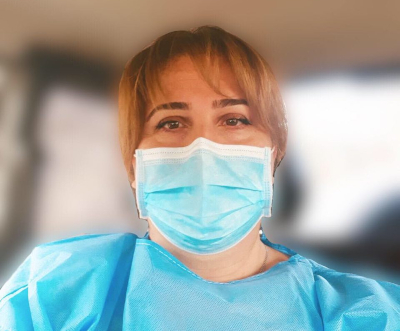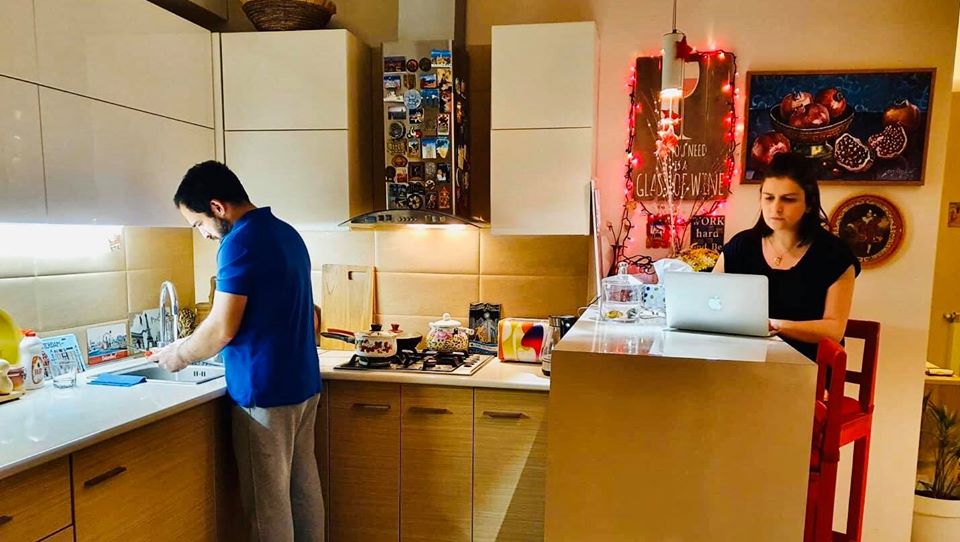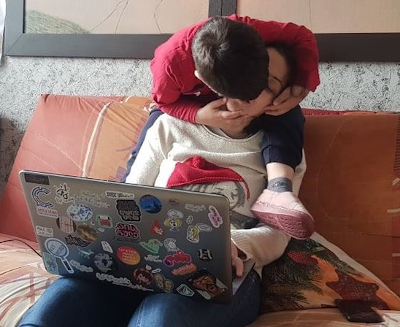Harnessing the power of social media to advocate for women’s rights during COVID-19
In early March the UN Women office in Georgia launched a series of campaigns on Facebook to advocate for women’s rights amid the COVID-19 crisis. Thanks to the popularity of the social media platform and the timely information, the campaigns reached over a million people.Date:

Self-isolation and social distancing have been key strategies to combat the spread of COVID-19. Yet, amid ‘stay at home’ orders, millions of women across the world and in Georgia have continued to carry out their essential jobs while taking on new challenges.
A family doctor from Bolnisi, Ia Gogidze, is one of them. “When I was investigating an alleged case of the new coronavirus, I didn’t feel any fear. I chose to become a physician, so this fight is my responsibility and I don’t want to stay away from it,” she said.
Inspired by Gogidze and many like her, UN Women Georgia launched a campaign entitled Women on the Frontline of the Fight Against COVID-19. The initiative was designed to showcase women’s pivotal contribution to the response against the virus.
Georgian women make up the vast majority of the overall health and social workforce. Like them, pharmaceutical chemists, supermarket consultants, cashiers, flight attendants and many others found themselves on the frontline and at high risk of contracting the virus. The coronavirus crisis reminded us every day that these low-paid jobs, stereotypically regarded as suitable for women, are essential for our society’s wellbeing.
Stay home, stay safe
In response to the spike of violence against women during the mandatory lockdown, UN Women Georgia also developed a Facebook initiative called: Stay Home, Stay Safe. The goal was to reach women trapped at home with their abusers with information on how and where to seek help.

One of the campaign messages was conveyed by Salome Gogodze, a police inspector responsible for dealing with cases of violence against women. “Today, most people are at home, including abusers. So I want to appeal to women: my colleagues and I are ready to help you at any time of the day or night. Please call 112 if you need help. Even during curfew, our crews will pick you up and drive you to a safe place,” she said.
Share the work
The COVID-19 crisis has also revealed the disproportionate amount of domestic work that women do and the need for women and men to share it more fairly. Through its Share the Work Facebook campaign, UN Women has collected and shared testimonials of women dealing with their multiple workloads during the lockdown.

“We have shared our functions this way: when I work, he does everything around the house – washing the dishes, cleaning the floor, dusting, etc... Only now I realize what a great relief it is when you get back from work and the housekeeping is already done,” said Radio Liberty reporter Nino Tarkhnishvili while talking about domestic work arrangements with her husband.

Research conducted by UN Women found that women in Georgia spend 45 hours per week on domestic chores, in comparison to men, who spend only 15 hours. With children also schooled at home during the coronavirus crisis lockdown, the burden for women has increased.
Some of the stories shared by women exposed deep rooted beliefs. One emphasized how society believed that housekeeping and child care is only women’s obligation, and if men participate they are praised. “As it turns out, my obligation from the very start was to work in such a way as if I didn’t have any children, and to take care of the children as if I didn’t get tired at work at all. Whereas my husband was highly regarded as a father-hero only because he changed his children’s diapers, looked after them when needed, washed dishes or cooked,” said Irinka Aliashvili, a media and communications Project Manager.
All three social media campaigns became very popular with posts reaching more than a million Facebook users.